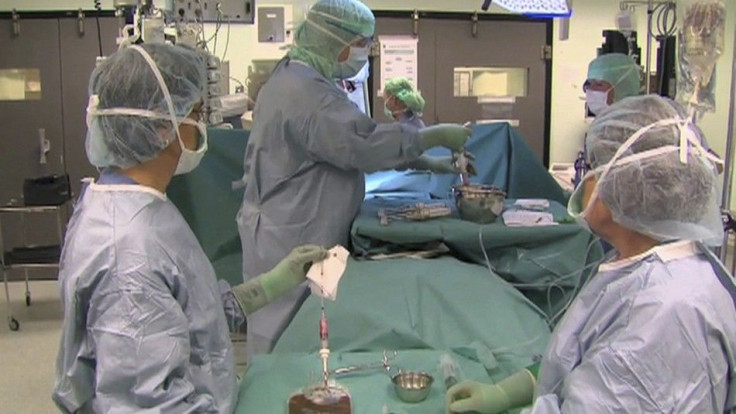U.S. Health Care Law: Supreme Court Likely to Determine Fate in 2012
Analysis

The 11th Circuit U.S. Court of Appeal's decision to strike down a key provision of the 2010 U.S. Health Care Reform law sets up perhaps the most important U.S. Supreme Court decision since the 2000 Gov v. Bush decision that effectively resolved the 2000 U.S. presidential election in favor of George W. Bush.
Further, the case also has the potential to structure the role of the federal government early in the globalization era akin to other programs proposed by the Obama administration during the financial crisis period, including the 2008-2009 emergency bank intervention, related interventions to save systemically important institutions such as AIG (AIG), Citigroup (C), Bank of America (BAC), and General Motor (GM), as well the $786 billion 2009 fiscal stimulus package.
Moreover, the prospective U.S. Supreme Court decision next year on the Court of Appeal's ruling, which struck down the 2010 Health Care Act's requirement that all Americans buy health insurance as "a wholly and potentially unbounded assertion of Congressional authority," also has the capacity to affect the 2012 U.S. presidential election, with votes hinging on a voter's view of the role of federal government involvement in health care.
Republican and other conservative voters are likely to view any Supreme Court support for the Appeal's Courts decision as a vindication of their argument that the federal government can not mandate -- or require -- citizens to purchase health care.
Democratic and other liberal voters are likely to view any Supreme Court decision upholding the 2010 U.S. Health Care Reform Act as way to limit health care system expenses that the federal government is required to pay.
In other words, since hospitals are legally bound to treat Americans who can not pay, a person's decision concerning whether to buy insurance is tantamount to a decision regarding how he/she will pay for that care: those with insurance, pay via health care premiums; those without insurance pay in cash or have that cost passed on to hospitals, paying customers or state/local/federal governments - all transactions which Congress can regulate through the U.S. Constitution's commerce clause.
High Court Decision Could Energize GOP or Democratic Voters
And, by extension, a Supreme Court decision against the conservative or liberal viewpoint has the capacity to energize the political base in each party.
Republicans, and in particular the very conservative Tea Party faction of the GOP, emboldened by its recent win in the U.S. debt deal debate, would probably be outraged by a Supreme Court decision supporting the health insurance mandate as further erosion of individual liberties inherent in the U.S. Bill of Rights and as another dangerous expansion of the federal government into the private sector and individual lives.
Democrats would probably view a Supreme Court decision striking down the health insurance mandate as a ruling that severely restricts Congressional authority to control and reduce health care costs it pays for: in other words a decision that would endorse a financially-bankrupting policy of letting the uninsured show up at high-cost hospital emergency rooms -- a considerable portion of which is at government expense -- instead of having them participate in a health insurance program that encourages them to access lower-cost primary care physicians -- a system that results in substantial cost saving for governments, particularly the U.S. Government.
Political/Public Policy Analysis: The U.S. Supreme Court begins its next term in October, so if it accepts the case by January 2012, it has to issue a decision by June 2012, which means the case has a chance to be decided before the 2012 election.
How is the U.S. Supreme Court likely to decide? That's an open question. The case addresses not only commerce provisions in the constitution, but also individual freedom and government authrority issues.
For example, does the federal government have the power to restrict citizen choices when certain citizen choices are destined to increase social service costs? And, by extension, if the federal government does not have that authority, can it then cutback/eliminate public health care services that are high cost, even if that results in the uninsured going without health care services, possibly even emergency room health care treatment?
Due to the above, and other issues, the health care reform case probably will not fit neatly on the liberal/conservative spectrum, and it defies easy prediction. In other words, don't expect a predicative vote by the four conservative justices (Roberts, Scalia, Alito, Thomas) or the four liberals (Breyer, Ginsburg, Sotomayor, Kagan). Justice Kennedy could prove to be the swing vote, or a less-important vote in a 6-3 or 7-2 decision.
The Supreme Court could rule the entire 2010 U.S. Health Care Reform Act unconstitutional, or strike down just the insurance mandate, or ask the lower court for more clarity.
Further, since there are several health care reform cases winding their way to the High Court, there's enough disagreement to warrant a review.
© Copyright IBTimes 2025. All rights reserved.





















